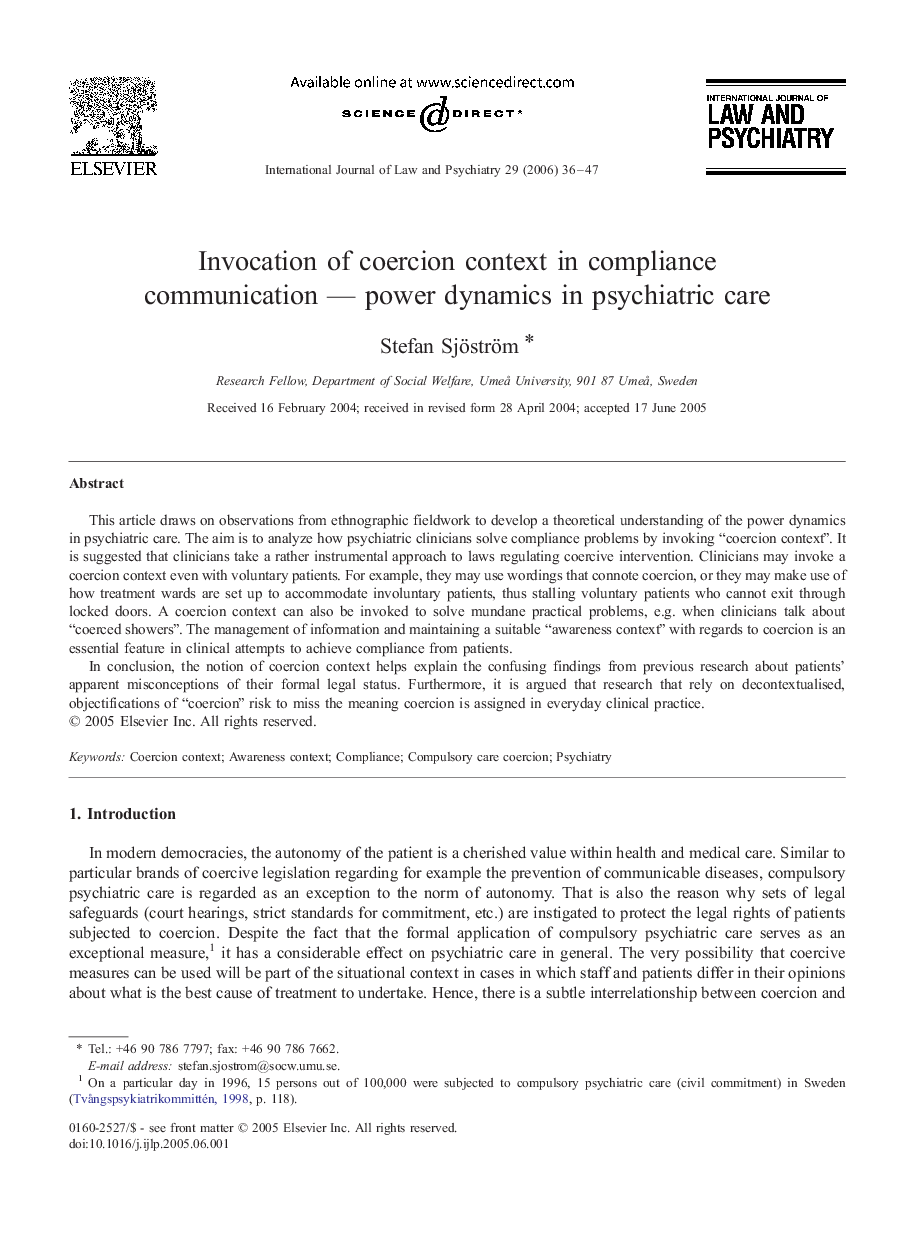| Article ID | Journal | Published Year | Pages | File Type |
|---|---|---|---|---|
| 101211 | International Journal of Law and Psychiatry | 2006 | 12 Pages |
This article draws on observations from ethnographic fieldwork to develop a theoretical understanding of the power dynamics in psychiatric care. The aim is to analyze how psychiatric clinicians solve compliance problems by invoking “coercion context”. It is suggested that clinicians take a rather instrumental approach to laws regulating coercive intervention. Clinicians may invoke a coercion context even with voluntary patients. For example, they may use wordings that connote coercion, or they may make use of how treatment wards are set up to accommodate involuntary patients, thus stalling voluntary patients who cannot exit through locked doors. A coercion context can also be invoked to solve mundane practical problems, e.g. when clinicians talk about “coerced showers”. The management of information and maintaining a suitable “awareness context” with regards to coercion is an essential feature in clinical attempts to achieve compliance from patients.In conclusion, the notion of coercion context helps explain the confusing findings from previous research about patients' apparent misconceptions of their formal legal status. Furthermore, it is argued that research that rely on decontextualised, objectifications of “coercion” risk to miss the meaning coercion is assigned in everyday clinical practice.
